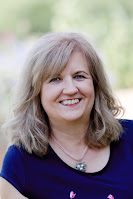“This is Lotta Hitschmanova. Please give generously to the Unitarian Service Committee, 56 Sparks Street, Ottawa Four.”
If those words strike a chord somewhere in your memory bank, you may be Canadian and around my age. How well I remember those black and white public service announcements on CBC television and my brothers imitating the narrator’s Czech accent. Perhaps the mockery provided a way to cover for any emotions those videos dredged up. I wish I’d understood more back then about the woman whose voice we parodied or the amazing work she did on behalf of impoverished children throughout her 80 years on earth.
Born in Prague in 1909, Lotta Hitschmanova grew up in a hardworking Jewish family who valued wisdom, honesty, charity, and education. Lotta earned diplomas in five languages—French, English, German, Spanish, and Czech—and a Ph.D. from Prague University.
As a journalist, Lotta spoke out against the Nazis prior to the breakout of war. As a result, she spent the early war years fleeing from one country to another, but always working diligently for the cause of refugees even while she herself was one. Arriving in the United States on a banana boat with other refugees in 1942, she headed for Canada where she’d been granted a visa. She had sixty dollars and weighed less than a hundred pounds.
Within four days, however, this energetic woman found secretarial work in Montreal. Shortly after, she began working in Ottawa for the Department of War Services, devoting her paid and unpaid time to raising funds for relief and rehabilitation of refugees.
Not until after the war ended did she learn that her parents had died in a holding camp en route to Auschwitz. Though she’d been offered several jobs in Czechoslovakia, she decided to stay in Canada.
Having become acquainted with the Unitarian Service Committee during the war, Lotta helped establish the Canadian branch (now known as SeedChange) in 1945. She served as chairman for four years, during which time she traveled across Canada appealing to audiences to help war-torn countries recover. Canadians responded to this tiny, flame-haired woman by sending food, money, and prosthetic limbs for injured children. Under “Doctor Lotta’s” direction, USC Canada began a foster parent program whereby Canadians could sponsor a child for which they received the child’s photo and story.
 |
| Lotta Hitschmanova |
Dr. Hitschmanova received many awards and made 56 Sparks Street a household name. After her death, it was revealed that the RCMP had spent thirty years spying on her, fearing that, as a Czech refugee, she may have been sympathetic to Communism.
Her iconic homemade uniform, laden with awards and honors, is on display at the Canadian War Museum in Ottawa.
Sources:
100 Canadian Heroines: Famous and Forgotten Faces, by Merna Forster, Dundurn Press, 2004
Wikipedia
The Canadian Encyclopedia
Emmaleen Kimball is 14 when she becomes convinced she really belongs to a troop of traveling circus performers. Why won’t anyone tell her the truth? Was the whole world out to deceive her? And more importantly, did they really think she’d never figure it out?
Bernadette Kimball is 27 with no marriage prospects in sight. And with all the men fighting overseas, that isn’t likely to change. Not that she cares. Who needs a family? Families are just one big mess of secrets and lies.
April Kimball-Madden carries the burden of a secret she promised never to share. How can she tell Emmaleen when she’s never told her own husband the truth? Joey has no idea Emmaleen isn’t really his wife’s little sister and if he ever finds out who her biological father is, it will open a can of worms so big her household will never survive.
Can these three sisters reconcile their worst fears and deepest longings before it’s too late? Will the faith they’ve been taught and the mercy they’ve been shown be enough to bring peace to their hearts even in the midst of war?
April’s Promise was short-listed in both the 2020 Word Awards & the 2020 Braun Book Awards.
Terrie Todd’s novels are set in Manitoba where she lives. She lives with her husband, Jon, in Portage la Prairie, Manitoba, Canada where they raised their three children and where her novels are (mostly) set. They are grandparents to five boys.
Follow Terrie here:
Quarterly Newsletter Sign-up



Thank you for posting today. It's amazing to me how many of these brave women and men lived long lives despite having lived through wartimes.
ReplyDelete